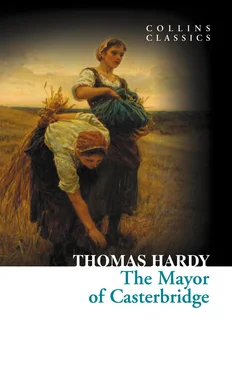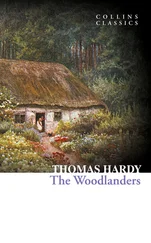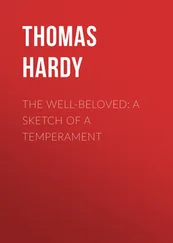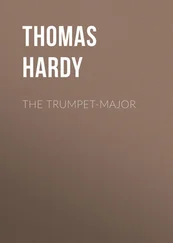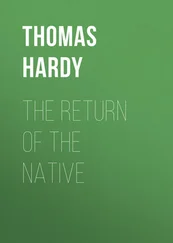THE MAYOR
OF CASTERBRIDGE
Thomas Hardy
Collins Classics
An imprint of HarperCollins Publishers 77–85 Fulham Palace Road Hammersmith London W6 8JB
Thomas Hardy asserts the moral right to be identified as the author of this work
A catalogue record for this book is available from the British Library
Life & Times section © Gerard Cheshire Classic Literature: Words and Phrases adapted from Collins English Dictionary
All rights reserved under International and Pan-American Copyright Conventions. By payment of the required fees, you have been granted the nonexclusive, nontransferable right to access and read the text of this e-book on-screen. No part of this text may be reproduced, transmitted, downloaded, decompiled, reverse engineered, or stored in or introduced into any information storage and retrieval system, in any form or by any means, whether electronic or mechanical, now known or hereinafter invented, without the express written permission of HarperCollins e-books.
HarperCollins Publishers has made every reasonable effort to ensure that any picture content and written content in this ebook has been included or removed in accordance with the contractual and technological constraints in operation at the time of publication.
Source ISBN: 9780007902118
Ebook Edition © MAY 2012 ISBN: 9780007477395
Version: 2014-09-03
Cover
Title Page
Copyright
General Preface to the Wessex Edition of 1912
Chapter 1
Chapter 2
Chapter 3
Chapter 4
Chapter 5
Chapter 6
Chapter 7
Chapter 8
Chapter 9
Chapter 10
Chapter 11
Chapter 12
Chapter 13
Chapter 14
Chapter 15
Chapter 16
Chapter 17
Chapter 18
Chapter 19
Chapter 20
Chapter 21
Chapter 22
Chapter 23
Chapter 24
Chapter 25
Chapter 26
Chapter 27
Chapter 28
Chapter 29
Chapter 30
Chapter 31
Chapter 32
Chapter 33
Chapter 34
Chapter 35
Chapter 36
Chapter 37
Chapter 38
Chapter 39
Chapter 40
Chapter 41
Chapter 42
Chapter 43
Chapter 44
Chapter 45
Keep Reading
Classic Literature: Words and Phrases Adapted from the Collins English Dictionary
About the Author
History of Collins
About the Publisher
GENERAL PREFACE TO THE WESSEX EDITION OF 1912
In accepting a proposal for a definite edition of these productions in prose and verse I have found an opportunity of classifying the novels under heads that show approximately the author’s aim, if not his achievement, in each book of the series at the date of its composition. Sometimes the aim was lower than at other times; sometimes, where the intention was primarily high, force of circumstances (among which the chief were the necessities of magazine publication) compelled a modification, great or slight, of the original plan. Of a few, however, of the longer novels, and of many of the shorter tales, it may be assumed that they stand today much as they would have stood if no accidents had obstructed the channel between the writer and the public. That many of them, if any, stand as they would stand if written now is not to be supposed.
In the classification of these fictitious chronicles – for which the name of ‘The Wessex Novels’ was adopted, and is still retained – the first group is called ‘Novels of Character and Environment’, and contains those which approach most nearly to uninfluenced works; also one or two which, whatever their quality in some few of their episodes, may claim a verisimilitude in general treatment and detail.
The second group is distinguished as ‘Romances and Fantasies’, a sufficiently descriptive definition. The third class – ‘Novels of Ingenuity’ – show a not infrequent disregard of the probable in the chain of events, and depend for their interest mainly on the incidents themselves. They might also be characterized as ‘Experiments’, and were written for the nonce simply; though despite the artificiality of their fable some of their scenes are not without fidelity to life.
It will not be supposed that these differences are distinctly perceptible in every page of every volume. It was inevitable that blendings and alternations should occur in all. Moreover, as it was not thought desirable in every instance to change the arrangement of the shorter stories to which readers have grown accustomed, certain of these may be found under headings to which an acute judgement might deny appropriateness.
It has sometimes been conceived of novels that evolve their action on a circumscribed scene – as do many (though not all) of these – that they cannot be so inclusive in their exhibition of human nature as novels wherein the scenes cover large extents of country, in which events figure amid towns and cities, even wander over the four quarters of the globe. I am not concerned to argue this point further than to suggest that the conception is an untrue one in respect of the elementary passions. But I would state that the geographical limits of the stage here trodden were not absolutely forced upon the writer by circumstances; he forced them upon himself from judgement. I considered that our magnificent heritage from the Greeks in dramatic literature found sufficient room for a large proportion of its action in an extent of their country not much larger than the half-dozen counties here reunited under the old name of Wessex, that the domestic emotions have throbbed in Wessex nooks with as much intensity as in the palaces of Europe, and that, anyhow, there was quite enough human nature in Wessex for one man’s literary purpose. So far was I possessed by this idea that I kept within the frontiers when it would have been easier to overlap them and give more cosmopolitan features to the narrative.
Thus, though the people in most of the novels (and in much of the shorter verse) are dwellers in a province bounded on the north by the Thames, on the south by the English Channel, on the east by a line running from Hayling Island to Windsor Forest, and on the west by the Cornish coast, they were meant to be typically and essentially those of any and every place where
Thought’s the slave of life, and life time’s fool
—beings in whose hearts and minds that which is apparently local should be really universal.
But whatever the success of this intention, and the value of these novels as delineations of humanity, they have at least a humble supplementary quality of which I may be justified in reminding the reader, though it is one that was quite unintentional and unforeseen. At the dates represented in the various narrations things were like that in Wessex: the inhabitants lived in certain ways, engaged in certain occupations, kept alive certain customs, just as they are shown doing in these pages. And in particularizing such I have often been reminded of Boswell’s remarks on the trouble to which he was put and the pilgrimages he was obliged to make to authenticate some detail, though the labour was one which would bring him no praise. Unlike his achievement, however, on which an error would as he says have brought discredit, if these country customs and vocations, obsolete and obsolescent, had been detailed wrongly, nobody would have discovered such errors to the end of Time. Yet I have instituted inquiries to correct tricks of memory, and striven against temptations to exaggerate, in order to preserve for my own satisfaction a fairly true record of a vanishing life.
It is advisable also to state here, in response to inquiries from readers interested in landscape, prehistoric antiquities, and especially old English architecture, that the description of these backgrounds has been done from the real—that is to say, has something real for its basis, however illusively treated. Many features of the first two kinds have been given under their existing names; for instance, the Vale of Blackmoor or Blakemore, Hambledon Hill, Bulbarrow, Nettlecombe Tout, Dogbury Hill, High-Stoy, Bubb-Down Hill, The Devil’s Kitchen, Cross-in-Hand, Long-Ash Lane, Benvill Lane, Giant’s Hill, Crimmer-crock Lane, and Stonehenge. The rivers Froom, or Frome, and Stour, are, of course, well known as such. And the further idea was that large towns and points tending to mark the outline of Wessex – such as Bath, Plymouth, The Start, Portland Bill, Southampton, etc. – should be named clearly. The scheme was not greatly elaborated, but, whatever its value, the names remain still.
Читать дальше
